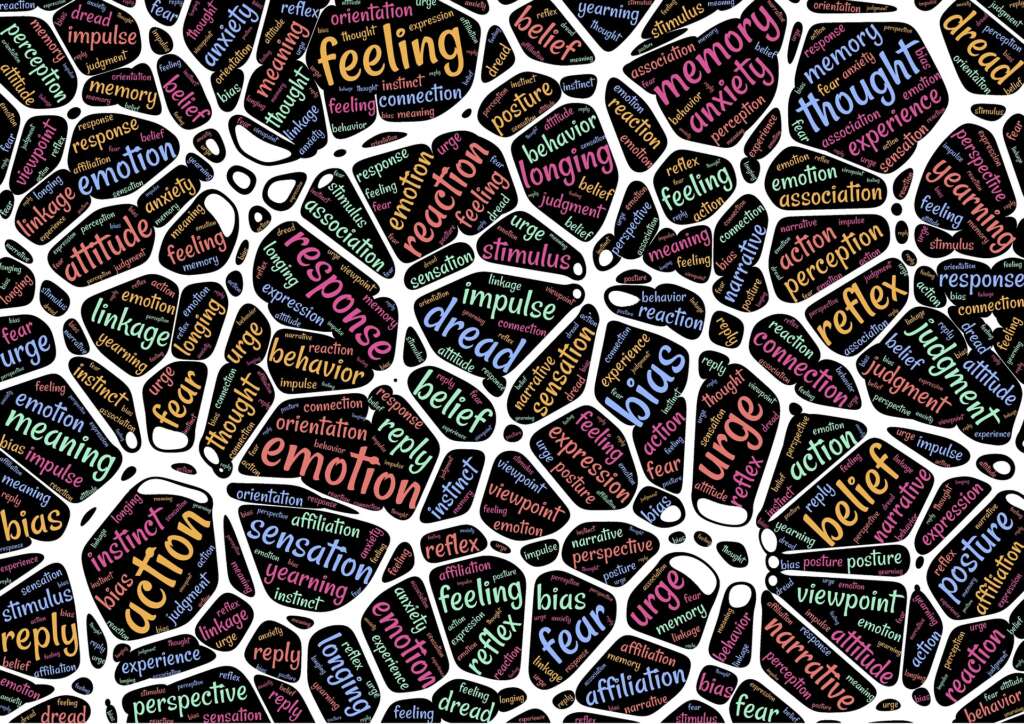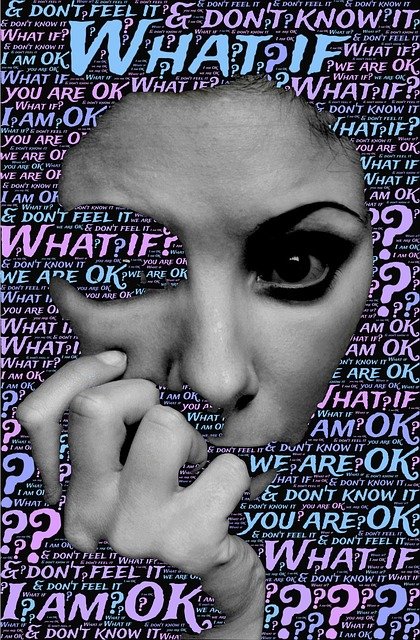Understanding Emotional Triggers
Emotional triggers are experiences or situations that elicit a strong emotional reaction. These triggers can be both positive and negative, and they are unique to each individual. Understanding your emotional triggers can help you manage your emotions and improve your emotional health.
Emotions are complex and can be influenced by a variety of factors, including past experiences, current circumstances, and individual differences. Emotional triggers are specific events or situations that activate a particular emotional response. For example, seeing a loved one after a long time apart may trigger feelings of joy and happiness, while receiving criticism from a coworker may trigger feelings of anger or frustration.
It is important to note that emotional triggers are not inherently good or bad. They are simply events or situations that elicit an emotional response. However, some emotional triggers may be more difficult to manage than others, particularly if they are associated with traumatic experiences or ongoing mental health issues.
Learning to identify your emotional triggers can help you better understand your emotional reactions and develop strategies for managing them. This may involve seeking support from a mental health professional, practicing relaxation techniques, or developing coping skills to manage difficult emotions.
By understanding your emotional triggers and developing strategies for managing them, you can improve your emotional health and overall well-being.
Common Emotional Triggers
Emotions are a natural part of human life, and everyone experiences them differently. Certain experiences can trigger an emotional response, and these emotional triggers can vary from person to person. In this section, we will discuss some common emotional triggers that people experience.

Past Experiences
Past experiences can trigger strong emotions, especially if they were negative. Traumatic events, such as abuse, accidents, or the loss of a loved one, can lead to emotional triggers. These experiences can create a lasting impact on a person’s physical, mental, and emotional well-being.
Rejection and Betrayal
Rejection and betrayal can be painful experiences that trigger negative emotions. Whether it’s a romantic relationship, friendship, or professional situation, rejection, and betrayal can lead to feelings of hurt, anger, and sadness. These emotions can be difficult to deal with, and it’s important to seek support from loved ones or a professional if needed.
Disrespect and Criticism
Feeling disrespected or criticized can trigger negative emotions, such as anger, frustration, and hurt. Whether it’s a personal or professional situation, it’s important to address the issue and communicate your feelings in a respectful manner. It’s also important to practice self-care and take time to process your emotions.
Feeling Unwanted and Ignored
Feeling unwanted or ignored can trigger negative emotions, such as sadness, loneliness, and frustration. Whether it’s in a personal or professional situation, it’s important to communicate your feelings and needs. It’s also important to practice self-care and surround yourself with supportive people.
In conclusion, emotional triggers can vary from person to person, and it’s important to identify and address them in a healthy manner. Whether it’s seeking support from loved ones or a professional, practicing self-care, or communicating your feelings, there are many ways to cope with emotional triggers.
Emotional Triggers and Relationships

Relationships can be a source of joy and fulfillment, but they can also be a source of stress and emotional turmoil. Emotional triggers are events or situations that can cause intense emotional reactions, and they can have a significant impact on your relationships. In this section, we will explore how emotional triggers can affect your relationships and provide some tips on how to manage them.
Communication in Relationships
Effective communication is essential for healthy relationships. When you communicate effectively, you can express your thoughts and feelings clearly, and you can also listen actively to your partner. However, communication can also be a source of emotional triggers. For example, if your partner criticizes you, you may feel hurt and defensive, which can lead to an argument.
To manage emotional triggers related to communication, it’s important to practice active listening and empathetic communication. Active listening involves paying attention to what your partner is saying and reflecting back on what you heard. Empathetic communication involves trying to understand your partner’s perspective and feelings. By practicing these communication skills, you can avoid misunderstandings and conflicts that can trigger negative emotions.
Creating Boundaries
Boundaries are limits that you set for yourself and others in your relationships. Boundaries can help you maintain your emotional well-being and prevent emotional triggers from occurring. For example, if your husband is always criticizing you, you may need to set a boundary by telling him that his comments are hurtful and unacceptable.
To create boundaries, it’s important to identify your needs and communicate them clearly to your partner. You can also set limits on how much time you spend with your partner or how much information you share with them. By setting boundaries, you can protect yourself from emotional triggers and maintain a healthy relationship.
Dealing with Envy
Envy is a common emotional trigger in relationships. When you feel envious of your partner’s success or happiness, you may feel resentful or angry, which can strain your relationship. To manage envy, it’s important to acknowledge your feelings and communicate them to your partner.
You can also practice gratitude and focus on the positive aspects of your relationship. By cultivating a sense of gratitude, you can appreciate what you have and avoid comparing yourself to others. Additionally, you can work on building your own self-esteem and finding fulfillment in your own life. By managing envy, you can prevent it from damaging your relationship.
In conclusion, emotional triggers can have a significant impact on your relationships. By practicing effective communication, creating boundaries, and managing envy, you can maintain healthy and fulfilling relationships. Remember to be patient and compassionate with yourself and your partner as you navigate the ups and downs of relationships.
Physical Manifestations of Emotional Triggers
Emotions can manifest in physical ways that affect your body. These physical manifestations can be subtle or severe, and they can vary depending on the type of emotion you are experiencing. Understanding the physical symptoms of emotional triggers can help you identify and manage your emotions better.
Physical Symptoms of Anxiety
Anxiety is a common emotion that can cause a variety of physical symptoms. These symptoms can include:
- Rapid heartbeat
- Sweating
- Shaking or trembling
- Shortness of breath
- Chest pain or discomfort
- Nausea or stomach upset
- Headaches
- Fatigue
If you experience these symptoms frequently, it may be a sign that you are experiencing anxiety. It’s important to talk to your doctor if you have concerns about your physical symptoms.
Changes in Heart Rate
Emotional triggers can also cause changes in your heart rate. When you experience strong emotions, your heart rate can increase or decrease. For example, if you feel anxious or stressed, your heart rate may increase. If you feel sad or depressed, your heart rate may decrease.
These changes in heart rate can have a significant impact on your overall health. If you experience frequent changes in heart rate, it’s important to talk to your doctor. They can help you identify the cause of the changes and develop a plan to manage them.
Understanding the physical manifestations of emotional triggers can help you identify and manage your emotions better. If you experience frequent physical symptoms or changes in heart rate, it’s important to talk to your doctor. They can help you develop a plan to manage your symptoms and improve your overall health.
Emotional Triggers and Trauma
Emotional triggers can lead to a range of psychological and physical responses, including trauma. Trauma is a response to a deeply distressing or disturbing event that overwhelms an individual’s ability to cope. Traumatic events can include physical or sexual assault, natural disasters, accidents, or witnessing violence. Understanding trauma triggers and post-traumatic stress disorder (PTSD) is essential in managing emotional triggers.
Understanding Trauma Triggers
Trauma triggers are anything that reminds an individual of the traumatic event they experienced. These triggers can be internal or external and can include sights, sounds, smells, or even thoughts. They can cause intense emotional and physical reactions, such as anxiety, panic attacks, or flashbacks. Identifying and managing trauma triggers is crucial in reducing the impact of emotional triggers on an individual’s life.
Post-Traumatic Stress Disorder (PTSD)
PTSD is a mental health condition that can develop after experiencing or witnessing a traumatic event. Symptoms of PTSD can include intrusive thoughts or memories, nightmares, avoidance of triggers, and hypervigilance. PTSD can significantly impact an individual’s quality of life, making it crucial to seek professional help to manage symptoms.
Managing emotional triggers and trauma can be challenging, but it is essential in maintaining a healthy and fulfilling life. Seeking professional help, such as therapy or counseling, can be beneficial in managing trauma triggers and PTSD symptoms. Additionally, practicing self-care techniques, such as mindfulness, exercise, and relaxation techniques, can help reduce the impact of emotional triggers on an individual’s life.
Coping with Emotional Triggers
Emotional triggers can be difficult to manage, but there are ways to cope with them effectively. In this section, we will explore two techniques that can help you manage your emotional triggers: mindfulness and breathing exercises, and healing and responsibility.
Mindfulness and Breathing Exercises
Mindfulness and breathing exercises can be effective in managing emotional triggers. Mindfulness is the practice of being present in the moment and paying attention to your thoughts and feelings without judgment. Breathing exercises can help you relax and calm down when you are feeling overwhelmed by your emotions.
To practice mindfulness, find a quiet place where you can sit comfortably. Focus on your breath and try to clear your mind of any distracting thoughts. If your mind starts to wander, gently bring your attention back to your breath. You can also try visualization exercises, such as imagining a peaceful scene or repeating a calming phrase to yourself.
Breathing exercises can help you relax and calm down when you are feeling overwhelmed by your emotions. There are many different types of breathing exercises, but one simple technique is to take slow, deep breaths in through your nose and out through your mouth. Focus on your breath and try to slow it down as much as possible.
Healing and Responsibility

Healing and responsibility are two important aspects of coping with emotional triggers. Healing involves identifying and addressing the underlying causes of your emotional triggers, such as past trauma or unresolved issues. Responsibility involves taking ownership of your emotions and your reactions to them.
To heal from emotional triggers, it is important to seek professional help if necessary. A therapist or counselor can help you work through past traumas and unresolved issues. You can also practice self-care techniques, such as exercise, meditation, or spending time in nature.
Taking responsibility for your emotions and your reactions to them can help you feel more empowered and in control. This involves recognizing that you have the power to choose how you react to your emotions and taking steps to manage them effectively. This may involve setting boundaries with others, practicing self-care, or seeking professional help if necessary.
In summary, coping with emotional triggers can be challenging, but there are effective techniques that can help. Mindfulness and breathing exercises can help you manage your emotions in the moment, while healing and responsibility can help you address the underlying causes of your emotional triggers and take ownership of your emotions. With practice and persistence, you can learn to manage your emotional triggers and live a more fulfilling life.
Emotional Triggers and Mental Health
Emotions play a significant role in mental health. Emotional triggers can cause mental health issues, and it’s essential to identify and manage them effectively. In this section, we’ll discuss some common emotional triggers that affect mental health and how to deal with them.
Dealing with Sadness and Grief
Sadness and grief are natural emotional responses to loss, change, or disappointment. However, if you find yourself struggling with these emotions for an extended period, it’s time to take action. Here are some ways to deal with sadness and grief:
- Acknowledge your feelings and allow yourself to grieve.
- Talk to someone you trust, like a friend or a therapist, about your emotions.
- Take care of yourself by eating well, exercising, and getting enough sleep.
- Practice self-compassion and avoid self-blame or guilt.
- Consider joining a support group to connect with others who are going through similar experiences.
Understanding Shame and Vulnerability
Shame and vulnerability are complex emotions that can be challenging to deal with. Shame is the feeling of being unworthy or inadequate, while the vulnerability is the feeling of being exposed or at risk. Here are some ways to understand and manage these emotions:
- Recognize and accept your vulnerability as a natural part of the human experience.
- Practice self-compassion and avoid self-criticism or self-blame.
- Challenge negative thoughts and beliefs that contribute to shame and vulnerability.
- Talk to someone you trust about your feelings, like a therapist or a friend.
- Practice self-care and engage in activities that make you feel good about yourself.
In conclusion, emotional triggers can have a significant impact on mental health. By understanding and managing emotions like sadness, grief, shame, and vulnerability, you can improve your mental well-being. Remember to seek professional help if you’re struggling with your emotions or mental health.
Emotional Triggers in Childhood and Addiction
Childhood Experiences
Childhood experiences can have a significant impact on your emotional triggers and how you respond to them. If you experienced trauma or abuse in your childhood, you may be more likely to develop an addiction later in life. Childhood experiences of feeling lonely or smothered can also contribute to addiction.
Addiction and Emotional Triggers

Addiction is often linked to emotional triggers. When you experience a certain emotion, it can trigger a craving for a substance or behavior that provides temporary relief. This can lead to a cycle of addiction where the substance or behavior becomes a coping mechanism for dealing with difficult emotions.
Emotional triggers can be anything from stress and anxiety to boredom and loneliness. They can also be linked to childhood experiences, such as feeling smothered or lacking freedom. Recognizing your emotional triggers and finding healthy ways to cope with them can be an important step in overcoming addiction.
Seeking Help
If you are struggling with addiction, it is important to seek help from a professional. They can help you identify your emotional triggers and develop healthy coping mechanisms. Therapy can also be a helpful tool in addressing childhood experiences that may be contributing to addiction.
Remember, addiction is a complex issue and there is no one-size-fits-all solution. It is important to seek personalized support and treatment that addresses your unique needs and experiences. With the right help, it is possible to overcome addiction and live a fulfilling life.

